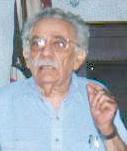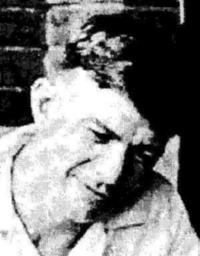Gl

Glaberman, Martin (1918-2001)
Martin Glaberman referred to himself as an “unreconstructed Johnsonite.” Johnson being the pen named used by the West Indian Marxist C.L.R. James during his time in the United States. Glaberman was a member of the tendency James founded along with Raya Dunayevskaya in 1941, and worked with James until the latter’s death in 1989. During this time Glaberman was the managing editor of such publications as Correspondence, Speaking Out and Speak Out. Glaberman worked as an auto worker for twenty years where he served as a shop steward, committeemen and local union editor. He was Professor Emeritus of Social Science in the College of Lifelong Learning of Wayne State University in Detroit. He was the author of countless articles and pamphlets, as well as a number of books. He died in December 2001.
Gladstone, William Ewart (1809-1898)
Liberal leader of merchant origin. First a Tory, then supporter of Peel and Free Trade, eventually joining the Liberal Party whose leader he became in 1866. As Prime Minister 1868-74 he brought in some reforms in the army, education and trade union rights. His second government enacted the Third Reform Act in 1884, giving the vote to most rural workers; his third government, of 1886, fell because of his split with Chamberlain and the Unionists over Irish Home Rule. His last government, 1892-94, made another unsuccessful attempt to break the alliance of the House of Lords, Chamberlain's Unionists and English and Irish Tories against Home Rule. In opposition, he agitated againstDisraeli's condoning of Turkish oppression in the Balkans and other excesses, although his own foreign policy was imperialist, with campaigns in Egypt and South Africa.

Glass, Frank (1901-1988)
Cecil Frank Glass, though born in England (Warwickshire) was brought up in South Africa when his family emigrated there in late 1908 or 1909. He was a member of the Industrial Socialist League that organised Coloured workers in Cape Town and joined the South African Communist Party when it was formed or very soon afterwards. He broke from their political positions in 1925 and adapted the positions of the Left Opposition in 1928.
Fascinated by the revolutionary events in China from 1927 onwards and critical of the Comintern, in 1930 he went to China and supported himself in Shanghai as a freelance journalist there over the next decade – apart from a visit to the USA from April 1937 to October 1938. By then he was a Trotskyist, who because of his many articles, written in New International under the name of Li Fu-jen, had considerable prestige in the Trotskyist movement. He helped found the Communist League in China and was its principal contact with the Trotskyist movement internationally. He went to meet Trotsky in Coyoacan on August 11, 1937, and he discussed China and Wang Fanxi’s analysis of the situation with LDT.
He went back to China but increasing difficulties and the Japanese invasion forced him to leave on the last ship from Shanghai before the attack on Pearl Harbour in December 1941. Via the Philippines and Australia he got back to the USA. He joined the American SWP and wrote extensively on China under the names of Ralph Graham and John Liang for their press. In the late 1940s he moved to the West Coast, Los Angeles and died there in 1988 after some years of bad health.
Glöbig, Fritz (1882–) .
One of 11 children of a worker. Injured at age of four by tram. Engraver, trade-unionist and member of Socialist Youth in 1908, joined Spartacus League during War whilst continuing activity in Socialist Youth. Member of KPD(S) on foundation, one of first leaders of German Communist Youth. Employed in Soviet embassy in 1922. Journalist in Bremen in 1923. Worked as journalist in Germany up to 1930, then settled in Moscow. Arrested in 1937, spent many years in concentration camp. Returned to Germany in 1955, admitted to SED.
Glotzer, Albert
American Trotskyist. Glotzer was expelled from the Communist party and it's youth organization in 1928 for demanding a discussion of Trotsky's views and expulsion from the Russian CP and exile to Siberia.
Together with others that were also expelled from the CP, Glotzer founded the Trotskyist Communist League of America in May, 1929. He was mainly responsible for preparing the founding conference in Chicago and also a member of the National Committee and Political Committee, 1930-34.
During this period Trotsky was deported from the Soviet Union and living in Turkey. Glotzer visited Trotsky there for several weeks. (He later visited Trotsky in France, 1934 and in Mexico, 1937). The visit to Turkey was followed by a tour he made of the U.S. and Canada in 1932 on the most important theme of the day: the danger of fascism in Germany and Trotsky's warning that unless there were a united front of struggle against the Nazis, all would be lost. For the Americans, that period meant putting out their paper, The Militant, three times a week.
A court reporter by occupation, Glotzer was the verbatim court reporter for the John Dewey Commission of Inquiry in Mexico to take testimony of Trotsky on the Moscow Frame-up trials.
Glotzer was a member of the Socialist Party in 1936-37 and one of the founders of the Socialist Workers party in 1938. During the 30's Hitler came to power in Germany. The Hitler-Stalin Pact was signed and W.W.II began with the Nazi invasion of Poland.
During 1938-39, a dispute broke out in the Trotskyist Socialist workers Party in which Glotzer and other leaders of the party, and a minority of members, rejected Trotsky's view that the Soviet Union was a Workers State. Instead they maintained that it was a new totalitarian society and not defensible on the grounds it violated freedom and democracy.
This break with Trotsky led to the formation of the Worker's Party in 1940 (later renamed Independent Socialist League). Al Glotzer was a founder, member of its National and Political Committees and at various times, editor of Labor Action and The New International, as well as National Secretary of ISL. In 1958 the ISL entered the Socialist Party, which later became Socialist Democrats, USA. He is a long time member of its National. He has also authored several pieces on his long-time associates such as Max Shachtman and Martin Abern, and the book Trotsky, Memoir and Critique in 1990. The personal papers of Albert Glotzer are at Hoover Institution.
Glynn, Tom
A Leader of IWW and one of the IWW 12, jailed for treason in a frame-up trial because of their successful work in the 1916 miners strike, and their militant opposition to the War. IWW agitators were itinerant, out-spoken and colourful figures. The popularity of their message, and the ample space given to denouncing them in the Press, was however not matched by the growth of the OBU, which remained little more than a number of 'clubs', isolated from the mass trade union movement. Glynn was a founder member of the CPA in 1920; drifted away from the CPA in 1921, rejecting the United Front tactic applied in relation to the Victorian Socialist Party (VSP) and the ALP and trade union leadership. He remained within the orbit of the CPA however, especially after the Moxon-Sharkey leadership adopted the ultra-left 'social fascist' policy; participated with the CPA in the Unemployed Workers Union and the Anti-eviction struggles.